The traditional role of a funeral celebrant is to lead the funeral service. This can involve giving the eulogy, presiding over the order of service, inviting friends and family members up for readings or leading the attendees in a period of quiet reflection.
As well as leading the service itself, a funeral celebrant can help plan a funeral service. Funeral celebrants can provide valuable guidance before the funeral about the structure, timings and contents of the service. Choosing the right celebrant can help to ease the stress of planning.
The term funeral celebrant is usually used in funerals not affiliated with religion although each religion has an equivalent religious leader to oversee the service.
How involved your funeral celebrant is in the funeral planning and the funeral service itself depends on your preferences and budget. Ideally, your celebrant will take the time to understand your family and the type of funeral you would like to have for your loved one.
These are some of the services typically offered by a funeral celebrant.
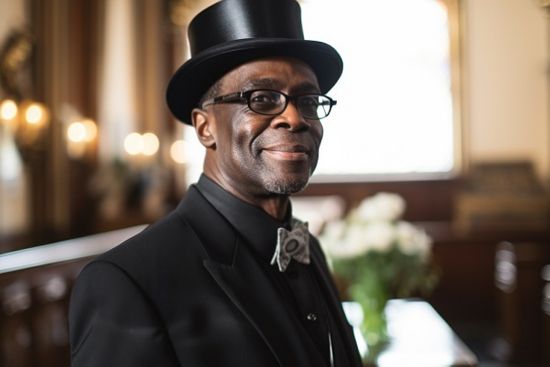
Conducting the service on the day of the funeral is a funeral celebrant's key role. Your celebrant will carry out the service according to your wishes and you and your family can be as involved as much as you would like to be.

Many funeral celebrants will offer a face-to-face or online meeting at a time and place to suit you ahead of the funeral. Doing so allows them to get to know about your loved one and gives you the opportunity to ask questions.
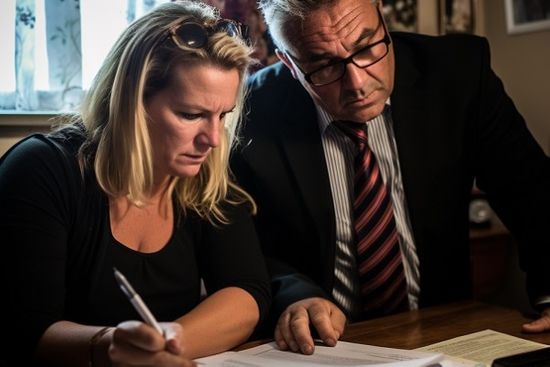
Funeral celebrants will have experience with lots of different funerals. They can offer suggestions for popular or less commonly used poems and readings as well as giving you ideas for other ways to personalise the funeral service.

Funeral celebrants will be familiar with the conventional timings and contents of funeral services. Your celebrant may have an order of service template you can follow or you can work together to create a unique funeral order of service to reflect your loved one.

Also sometimes referred to as a tribute, a eulogy about the person who has died is traditionally read at their funeral service. If you're not sure where to start, your celebrant can often offer advice about writing a eulogy based on their past experience.
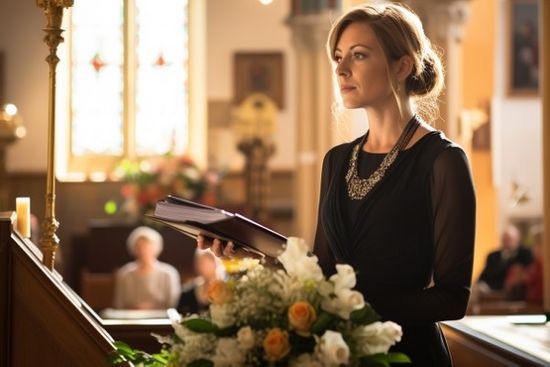
You may wish to read the eulogy yourself or have someone who was close to your loved one read it. However, if there is no one attending the funeral who feels comfortable or emotionally ready to read the eulogy, a funeral celebrant can take on this role for you.
The religious beliefs of the person who has died or the person arranging the funeral will influence which type of funeral celebrant, officiant or minister oversees the burial or cremation funeral.
Each religion has a different officiant to conduct the funeral service.
Within non religious funerals there are also two different types of celebrants. Humanist and civil celebrants are both unaffiliated with any religion.
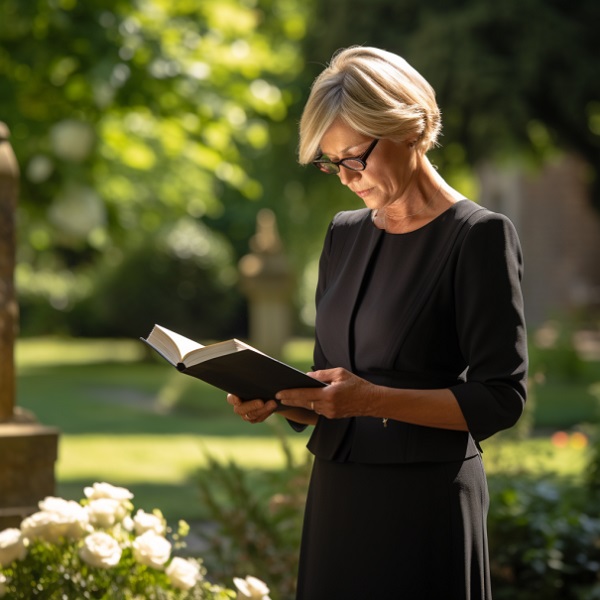
The amount you can expect to pay for a funeral celebrant or officiant varies. Factors that can affect the cost include the region you live in, the level of involvement you’d like the person leading the service to have and the religion of the service.
Here are the typical average funeral celebrant costs and costs for other religious leaders.
| Type of officiant | Average cost |
|---|---|
| Humanist celebrant | £180 – £300[1] |
| Church of England vicar | £227 - £472[2] |
| Muslim imam | Check with local Mosque |
| Jewish rabbi | Around £200[3] |
In some faiths, the religious leader conducting the funeral ceremony may not charge a fee directly. Instead, fees or donations will commonly be requested to support the place of worship. These include donations to the Church of Scotland, Sikh gurdwara and Buddhist temples. Hindu priest’s fees vary and aspects of the funeral ceremony may be led instead by the eldest son of the deceased.
[1] Guide costs for humanist funeral celebrants, Humanists UK
[2] Fee for conducting a Church of England funeral service from 1st January 2023, Church of England
[3] Approximate rabbi costs for shivah services, Liberal Judaism
You no doubt want to find a funeral celebrant who makes you feel comfortable and supported and whose style fits in with your wishes for the funeral service.
There are three main ways to find a funeral celebrant.

You may already have a friend who is a funeral celebrant or you’ve attended a funeral in the past where you appreciated the celebrant’s style of delivery. Asking friends and family for celebrant recommendations helps you to keep the funeral personal and choose a celebrant who will suit you.

You can have a look for a funeral celebrant online. There are several celebrant directories including Celebrant Directory, Funeral Celebrants, Humanists UK, UK Society of Celebrants, UK Celebrants and Independent Celebrants. You can also have a look in local magazines and directories.

Your funeral director or funeral provider will most likely have celebrants that they can point you towards. Some funeral providers may work with specific funeral celebrants and include the celebrant’s fees in their prices so it’s worth asking what’s included if you know you’d like a celebrant led funeral.
To help you choose your celebrant and be fully informed about what they offer, there are three key questions you can ask before making your decision.
Crematorium Officer, Borders Crematorium
“Some families we support at Borders Crematorium choose to manage every aspect of the funeral arrangements to feel close to their lost loved one and maintain a sense of control during a turbulent time. However, there are others who find arranging a funeral extremely difficult emotionally.
“For those who appreciate that bit of extra support, a celebrant can be an invaluable source of comfort. Having a familiar face who you’ve met before the service to discuss your loved one and their funeral wishes can help you to feel reassured that the arrangements will run smoothly.”
Whilst a funeral celebrant can be an important pillar of support for some people, others prefer to have a small intimate funeral with just those who knew the deceased in attendance.
There is no legal requirement to have a celebrant so it’s completely possible to have a family-led funeral instead or forego a traditional funeral altogether.

With our Funeral Service, you have the choice of a 30 or a 60 minute service.
This service can be led by the family or a professional celebrant, depending on what you prefer. and can include music, readings, a eulogy and time to sit in quiet reflection.
Arrange a funeral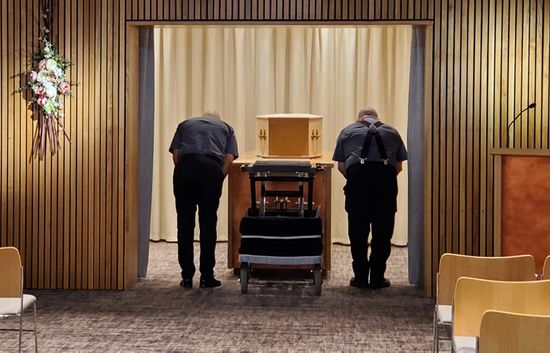
Not only do you not have to have a funeral celebrant, you don’t have to have a funeral at all.
A direct cremation is a respectful cremation without attendees, popular with those who don't want a fuss or would prefer a more unique memorial.
View our direct cremation services
If you don't want a celebrant-led funeral, you can choose your funeral in advance with a prepaid funeral plan.
Having a funeral plan brings you peace of mind about your own funeral. You can set one up for someone else if you're responsible for their arrangements too.
Get your FREE funeral plan guideTell your funeral celebrant about your loved one so they can make the service as personal as possible. Before speaking to the celebrant you may like to speak with other people close to your loved one so they can share their memories and experiences too.
Some aspects of your loved one’s life you might like to discuss are their:
You can also share your loved one's funeral wishes and whether they wanted an extravagant burial or low cost cremation.

Once you have chosen your funeral celebrant, you may also like to consider other aspects of the funeral service as well.
If a loved one has died and you need to arrange a funeral straightaway, call our experienced and compassionate team on 01543 212000.
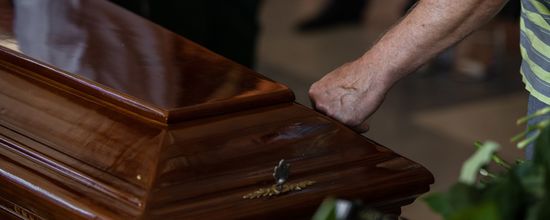
Coffin styles and prices vary depending on how elaborate you would like your loved one's coffin to be. See the options available and the average costs you can expect to pay.
Types of coffins
The type of funeral urn you choose depends on what you would like to do with your loved one's ashes. Different urns are suited for burying, scattering and keeping the ashes.
Funeral urns
As well as organising the funeral service, you may also like to pay tribute to your loved one and their achievements by writing and publishing an obituary online or in a newspaper.
How to write an obituaryWe offer the highest level of support, but don't just take our word for it. Below are recent reviews from customers who bought a funeral with us.





